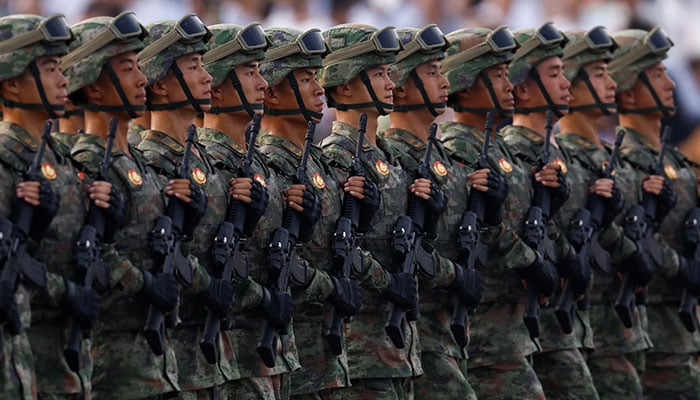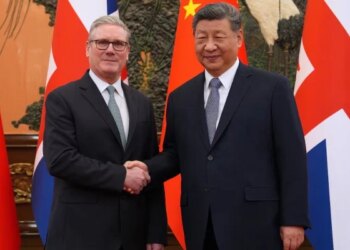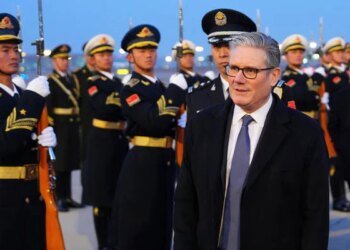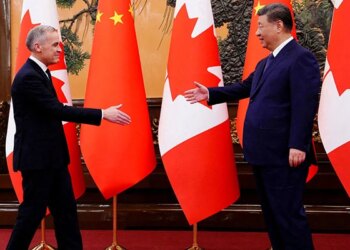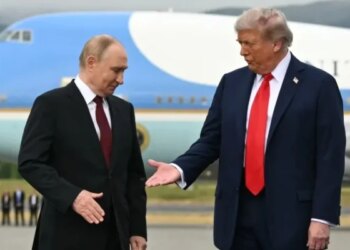Select Language:
Pakistan’s Prime Minister Shehbaz Sharif is among 26 world leaders attending China’s largest-ever military parade on Wednesday. The event, orchestrated by President Xi Jinping, showcases China’s expanding military strength and the country’s growing influence on the international stage.
The parade kicked off at Tiananmen Square, with Xi Jinping making his way down a red carpet flanked by Russian President Vladimir Putin and North Korea’s Kim Jong Un. Xi, dressed in a Mao-style suit, greeted international guests including Indonesia’s Prabowo Subianto, who appeared unexpectedly despite recent protests in his country. During the greetings, Xi exchanged pleasantries in English, saying “Nice to meet you” and “Welcome to China.”
This carefully choreographed “Victory Day” celebration lasts approximately 70 minutes and features aerial displays, marching troops, and advanced military technology such as hypersonic missiles, drones, and armored tanks. Thousands of spectators gathered in Beijing’s Tiananmen Square to witness the spectacle, with many roads and educational institutions shutting down ahead of the event after weeks of meticulous security planning and rehearsals.
Prior to the parade, Xi inspected the troops assembled at the square and is scheduled to deliver a major speech from atop the Gate of Heavenly Peace, with a portrait of Mao Zedong overlooking the scene. The occasion marks 80 years since Japan’s defeat at the end of World War II, a milestone Xi frames as part of China’s “great rejuvenation,” emphasizing the nation’s overcoming of past invasions and humiliation to emerge as a global power.
In his address, Xi is anticipated to highlight China’s and the Soviet Union’s roles in defeating fascism and maintaining the post-war international order. Recently, Xi detailed his vision for a new world system at a regional security summit, calling for unity and denouncing “hegemonism and power politics,” a critique often directed at the United States and recent U.S. tariffs.
Other world leaders, including Vladimir Putin and Kim Jong Un, used this platform to deepen energy cooperation and support North Korea’s nuclear ambitions, respectively. Kim’s attendance marks the first time a North Korean leader has participated in a Chinese military parade in over six decades. Notably, Kim’s daughter Ju Ae, considered a potential successor, made her first international appearance, walking with her father at the event.
To ensure security and a smooth procession, Chinese authorities mobilized thousands of volunteers and Communist Party members across cities. Experts suggest that Xi aims to demonstrate the military’s loyalty and strength, reinforcing his leadership claims amid a global environment of strategic competition.

